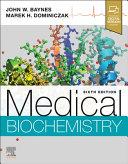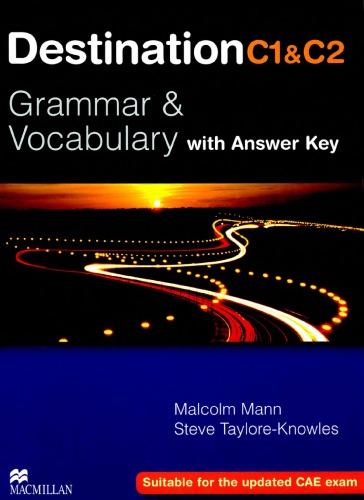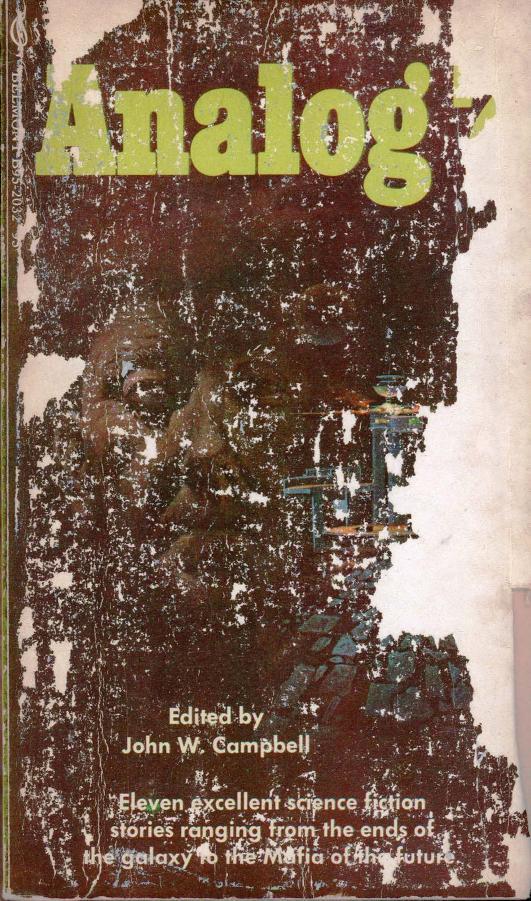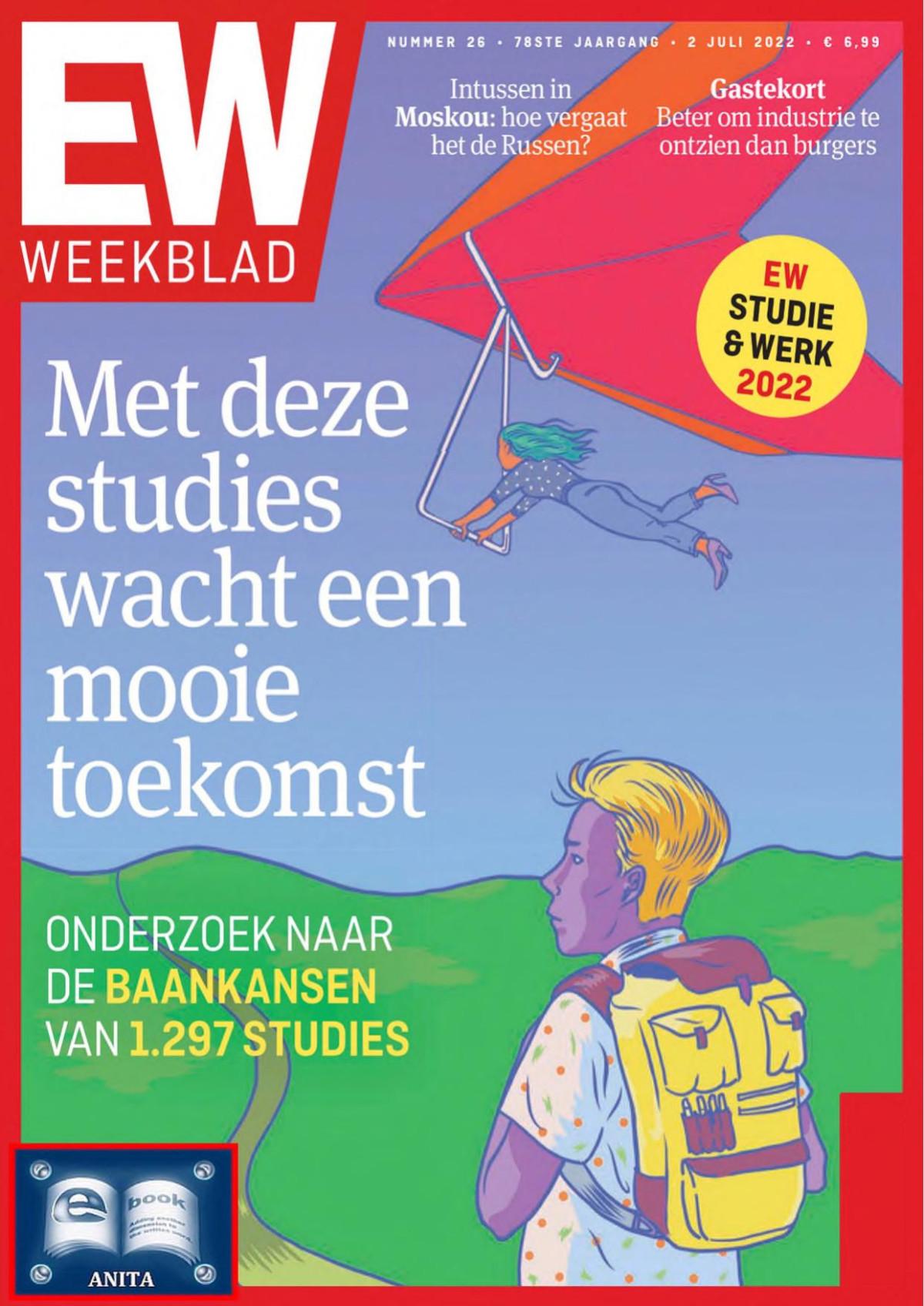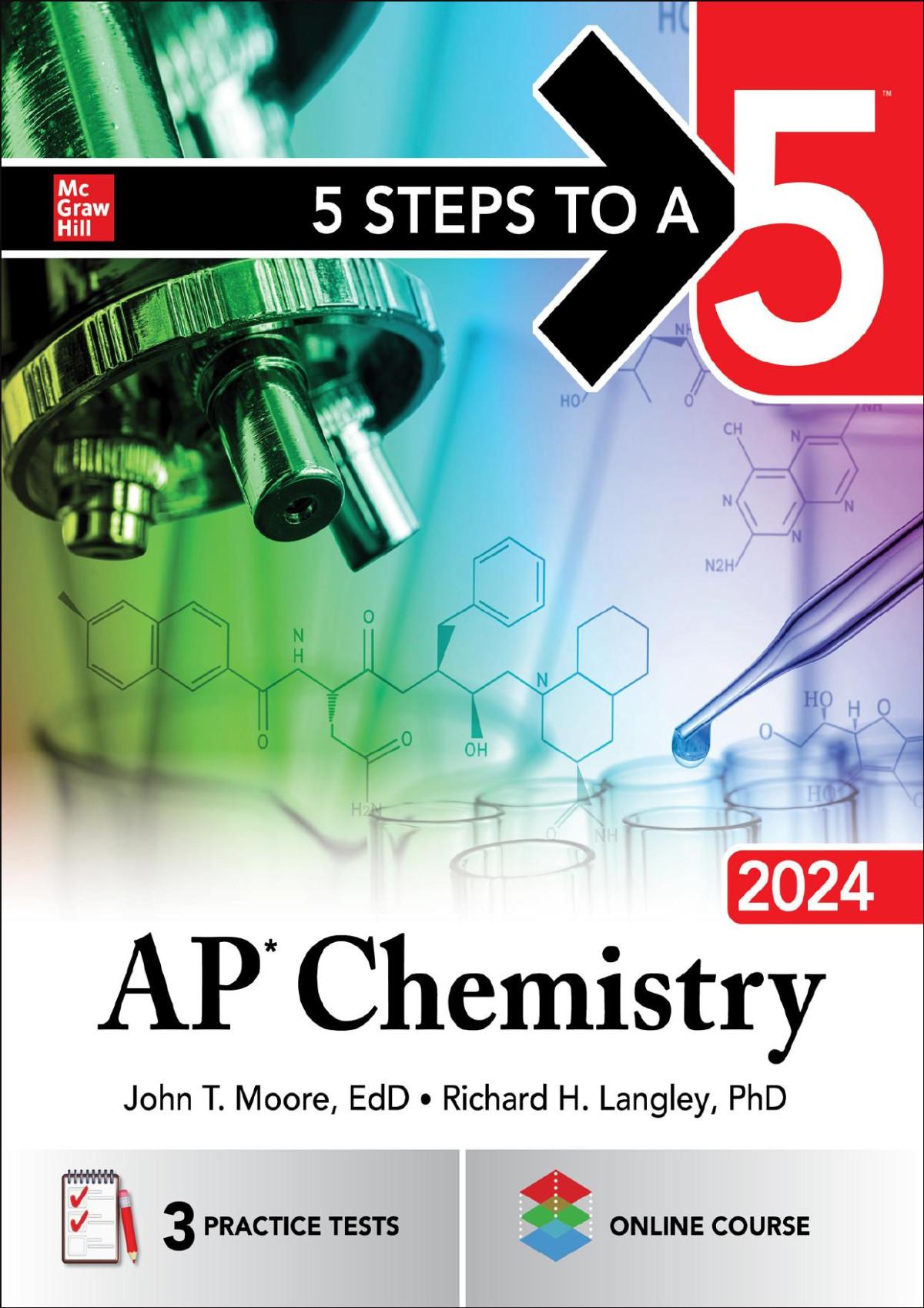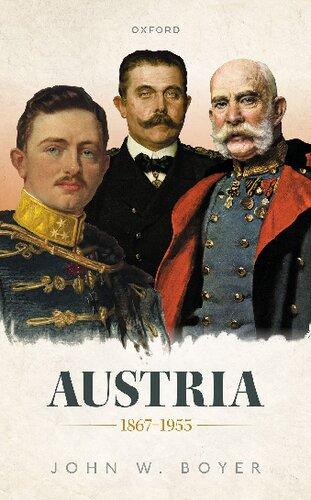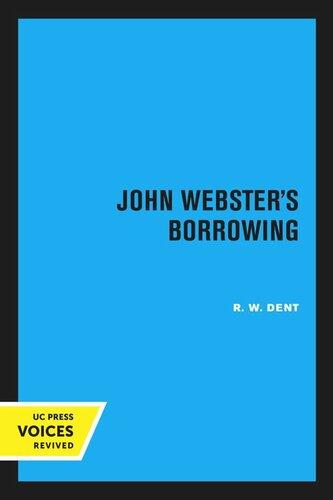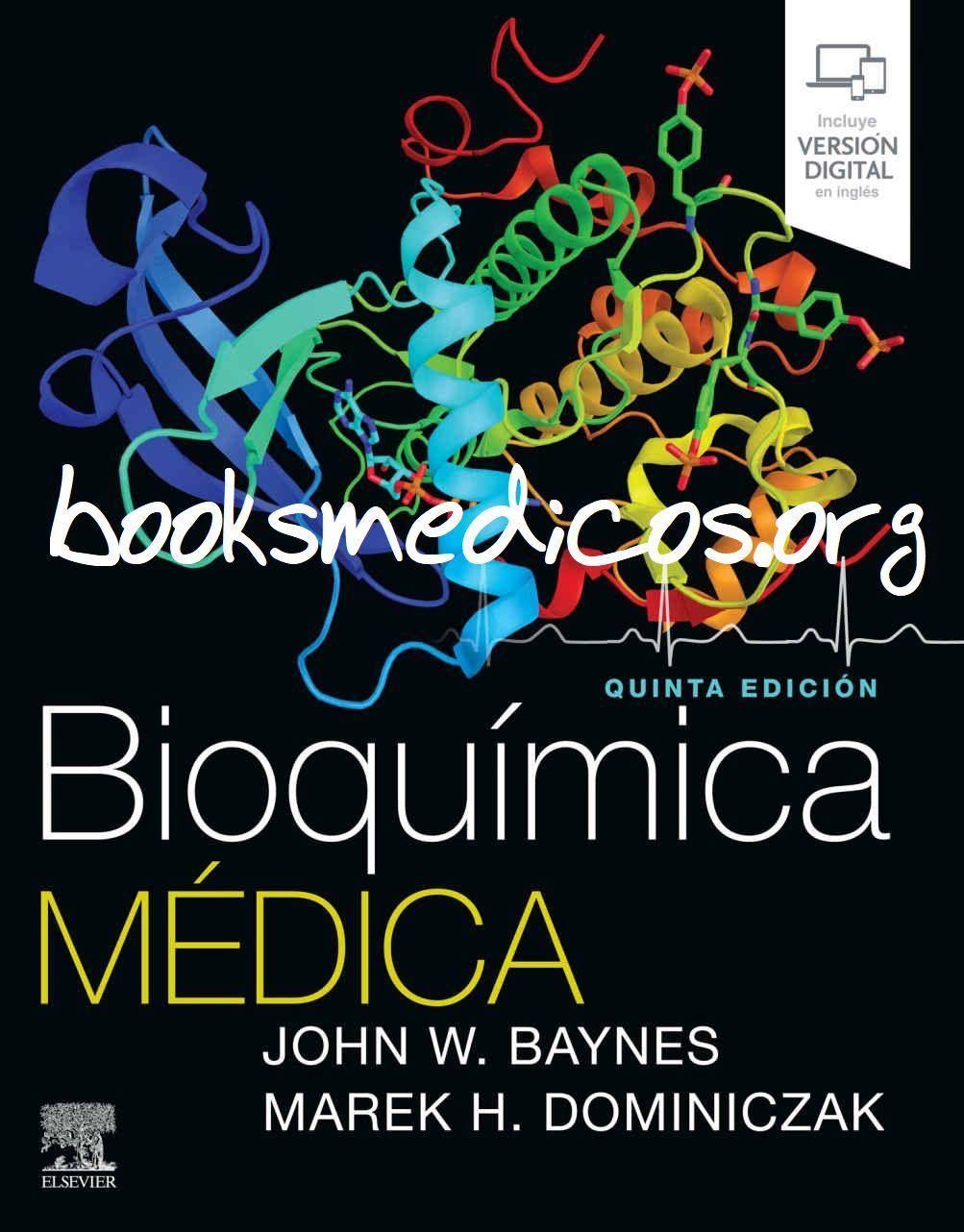Índice de capítulos
Instrucciones para el acceso en línea
Cubierta
Portada
Página de créditos
Colaboradores
Agradecimientos
Dedicatoria
Prefacio
Abreviaturas
Sección 1: Introducción
Capítulo 1: Introducción
Resumen
Bioquímica y la práctica de la medicina: introducción y visión general
Abreviaturas
Sección 2: Moléculas y células
Capítulo 2: Aminoácidos y proteínas
Resumen
Introducción
Aminoácidos
Amortiguadores o tampones
Péptidos y proteínas
Purificación y caracterización de las proteínas
Análisis de la estructura proteica
Resumen
Abreviaturas
Capítulo 3: Hidratos de carbono y lípidos
Resumen
Introducción
Hidratos de carbono
Lípidos
Estructura de las membranas biológicas
Resumen
Abreviaturas
Capítulo 4: Membranas y transporte
Resumen
Introducción
Tipos de procesos de transporte
Resumen
Abreviaturas
Sección 3: Metabolismo
Capítulo 5: Transporte de oxígeno
Resumen
Introducción
Características de las proteínas globinas de los mamíferos
Modulación alostérica de la afinidad de la hemoglobina por el oxígeno
Temas seleccionados
Resumen
Abreviaturas
Capítulo 6: Proteínas catalíticas: enzimas
Resumen
Introducción
Reacciones enzimáticas
Cinética enzimática
Mecanismo de acción enzimática
Inhibición enzimática
Regulación de la actividad enzimática
Medición enzimática de la glucosa sanguínea
Resumen
Abreviaturas
Capítulo 7: Vitaminas y minerales
Resumen
Introducción
Vitaminas liposolubles
Vitaminas hidrosolubles
Suplementos vitamínicos en la dieta
Minerales
Resumen
Abreviaturas
Capítulo 8: Bioenergética y metabolismo oxidativo
Resumen
Introducción
Oxidación como fuente de energía
Energía libre
Conservación de la energía por acoplamiento de reacciones con la hidrólisis de ATP
Síntesis mitocondrial de adenosina trifosfato a partir de coenzimas reducidas
El sistema de transporte de electrones mitocondrial
Transferencia de electrones de NADH a las mitocondrias
Síntesis de adenosina trifosfato: hipótesis quimiosmótica
Inhibidores del metabolismo oxidativo
Regulación de la fosforilación oxidativa
Resumen
Abreviaturas
Capítulo 9: Metabolismo anaerobio de los hidratos de carbono en el eritrocito
Resumen
Introducción
Eritrocito
Glucólisis
Síntesis de 2,3-bisfosfoglicerato
Vía de las pentosas fosfato
Resumen
Abreviaturas
Capítulo 10: Ciclo de los ácidos tricarboxílicos
Resumen
Introducción
Funciones del ciclo de los ácidos tricarboxílicos
Piruvato carboxilasa
Complejo piruvato deshidrogenasa
Enzimas y reacciones del ciclo de los ácidos tricarboxílicos
Rendimiento energético del ciclo de los ácidos tricarboxílicos
Reacciones anapleróticas («de relleno»)
Regulación del ciclo de los ácidos tricarboxílicos
Resumen
Abreviaturas
Capítulo 11: Metabolismo oxidativo de los lípidos en el hígado y el músculo
Resumen
Introducción
Activación de los ácidos grasos para el transporte al interior de las mitocondrias
Oxidación de los ácidos grasos
Cetogénesis, una vía metabólica singular del hígado
Resumen
Abreviaturas
Capítulo 12: Biosíntesis y almacenamiento de hidratos de carbono en el hígado y el músculo
Resumen
Introducción
Estructura del glucógeno
Glucogénesis hepática a partir de la glucosa sanguínea
Vía de la glucogenólisis hepática
Regulación hormonal de la glucogenólisis hepática
Mecanismo de acción del glucagón
Movilización del glucógeno hepático por la adrenalina
Glucogenólisis muscular
Regulación de la glucogénesis
Gluconeogénesis
Resumen
Abreviaturas
Capítulo 13: Biosíntesis y almacenamiento de ácidos grasos
Resumen
Introducción
Síntesis de ácidos grasos
Almacenamiento y transporte de ácidos grasos: síntesis de triacilgliceroles (triglicéridos)
Regulación de los depósitos de grasa corporal total
Resumen
Abreviaturas
Capítulo 14: Biosíntesis del colesterol y de los esteroides
Resumen
Introducción
Estructura de la molécula de colesterol
El colesterol se encuentra esterificado en el interior celular y en el plasma
Biosíntesis del colesterol
Eliminación del colesterol: ácidos biliares
Hormonas esteroideas
Vitamina D
Resumen
Abreviaturas
Capítulo 15: Biosíntesis y degradación de los aminoácidos
Resumen
Introducción
Metabolismo de las proteínas de la dieta y endógenas
Degradación de los aminoácidos
Metabolismo del esqueleto carbonado de los aminoácidos
Biosíntesis de los aminoácidos
Enfermedades hereditarias del metabolismo de los aminoácidos
Resumen
Abreviaturas
Capítulo 16: Biosíntesis y degradación de nucleótidos
Resumen
Introducción
Metabolismo de las purinas
Metabolismo de las pirimidinas
Formación de desoxinucleótidos
Resumen
Abreviaturas
Capítulo 17: Hidratos de carbono complejos: glucoproteínas
Resumen
Introducción
Estructuras y enlaces
Interconversiones de los azúcares de la dieta
Otras vías del metabolismo de los nucleótidos azúcar
Biosíntesis de oligosacáridos
Funciones de las cadenas de oligosacáridos de las glucoproteínas
Resumen
Abreviaturas
Capítulo 18: Lípidos complejos
Resumen
Introducción
Síntesis y recambio de los glicerofosfolípidos
Esfingolípidos
Enfermedades de almacenamiento lisosomal secundarias a defectos en la degradación de los glucolípidos
Antígenos de grupo sanguíneo ABO
Resumen
Abreviaturas
Capítulo 19: Matriz extracelular
Resumen
Introducción
Colágenos
Proteínas no colagenosas en la matriz extracelular
Proteoglucanos
Comunicación de las células con la matriz extracelular
Resumen
Abreviaturas
Sección 4: Bases moleculares de la herencia
Capítulo 20: Ácido desoxirribonucleico
Resumen
Introducción
Estructura del ácido desoxirribonucleico
Ciclo celular en las células eucariotas
Replicación del ADN
Reparación del ADN
Tecnología de ADN recombinante
Principios de hibridación molecular
Clonación de ADN
Resumen
Abreviaturas
Capítulo 21: Ácido ribonucleico
Resumen
Another random document with no related content on Scribd:
and an adjustment there: ‘they have to be viewed in their wide sweep. ’ Mr Macdonald discusses with considerable fullness the Montagu-Chelmsford report, deals with the religious problems in India, and remarks that a very common opinion of both Indians and English is that the Christian missions in India thwart the nationalist movement partly by implanting in the minds of the people thoughts which lead them away from Indian leadership and ideas. In the author’s judgment, the Legislative councils should have more authority, especially in finance, and the Viceroy’s council be made more representative.” Ath
Ath p1272 N 28 ’19 200w
Booklist 17:66 N ’20
“This new volume has been produced in an international milieu which is characterized by at least two sets of conditions. The first are those generated by the talk of a league of nations, and the second is the fait accompli of a socialist state in bolshevik Russia. And it is because the author seeks to harmonize his theories with these novel phenomena that his book acquires an importance such as is hardly indicated by the limitations of its title.” B. K. Sarkar
Freeman 1:476 Jl 28 ’20 1200w
“The trouble about Mr Ramsay Macdonald’s book on India is that portions of it are obsolete. He describes a form of government which is about to undergo great modifications. Little further need be said by the way of criticism. Mr Macdonald writes with a practised hand, sometimes even with charm. He has handled his theme with moderation and restraint. It is a pleasure to pick up a book about
India which contains no word of bitterness, no trace of violent controversy, no exaggeration or over-statement.”
The Times [London] Lit Sup p723 D 11
’19 950w
MACDONALD, JAMES RAMSAY. Parliament and revolution. (New library of social science) *$1.50 Seltzer 335 20–26685
“‘Parliament and revolution’ is a careful comparison between the existing government in England and the aims and projects of the Bolshevists. While the book is antibolshevist, Mr Macdonald is quick to recognize any sound reasoning in the bolshevist theories to denounce the flaws in the rule of Parliament. He includes a description of the working of the soviet system in Russia, and a discussion of ‘direct action,’ the name under which bolshevism is discussed and advocated by the British labor party.” Springf’d Republican
“Not in any sense an objective scientific study, but an assertion of principles that deserves attention.”
Ind 104:247 N 13 ’20 60w
“As a piece of argumentation ‘Parliament and revolution’ leaves a good deal to be desired. Its logical texture is not of the finest; too often it gives us assertion where we want demonstration; and as for ‘scientific’ and ‘unbiased,’ these adjectives, by which the book is described in the publishers’ advertisement on the paper cover, have no more to do with the case than the flowers that bloom in the spring.”
R. L. Schuyler
Nation 110:826 Je 19 ’20 850w
“In a measure, Mr Macdonald’s book is a salutary corrective to a good deal of loose vituperation. But there is another aspect to the matter with which he has failed to deal. Granted the ignorance and inertia of the modern electorate what, at bottom, are its causes?... The trade unions have an importance which Mr Macdonald altogether fails to give them in this study.” H.
J. L.
New Repub 22:383 My 19 ’20 1800w
“The book is one that, we warrant, will not fully satisfy any single Socialist. One feels himself at times tantalized between enjoyment of some excellent statement of principle or fact or analysis of some particular question, only to draw a conclusion here and there that appears to be a concession to conventional opinion. Yet the book will appeal to all but the romanticists and those of fixed opinions.” James Oneal
N Y Call p10 Jl 25 ’20 1000w
“The first volume of the New library of social science seems to me the most straightforward treatise on government which has come out since the beginning of the war. ” M. H. Anderson
Pub W 97:998 Mr 20 ’20 320w
“It is to be hoped that this contribution may stimulate a further discussion on these important questions of the technique of revolution.”
Socialist R 10:28 Ja ’21 920w
“It is forceful in logic and classic in clearness.”
Springf’d Republican p11a Je 27 ’20 100w
“The whole book is a careful study of dangerous political tendencies of the times and well worth reading by adherents and opponents of socialism alike.” B. L.
Survey 44:417 Je 19 ’20 450w
The Times [London] Lit Sup p615 O 30 ’19 240w
“This is the story of a little girl who visited the land behind the dictionary and found out for herself that words are alive.” Eileen was sitting in the schoolroom writing out the words she had misspelled and trying to remember that syntax doesn’t end in tacks, when the letter X suddenly jumped out of her inkwell and confronted her. Under his guidance she visited Dictionary Town and there met the words who live in English Wordland, “plain strong Anglo-Saxon words, French aristocrat words who came over with William the Conqueror, the old giant Greek and Latin words, foreign words from every land who have been adopted by Mother English Language, and the happy-go-lucky slang words who live in a gipsy camp outside of Dictionary Town.” The whimsical illustrations are by Stuart Hay.
“A very clever little idea, this. With all her fun, the author tries to be soundly etymological, which will please the educators, without annoying the children. The illustrator, Stuart Hay, adds much with his line-drawings to a book which is bound to give its readers a good time.”
Lit D p90 D 4 ’20 270w
“It will be an excellent book for supplementary reading in the elementary grades. The story moves with much briskness and variety.”
N Y Evening Post p14 N 13 ’20 220w
MACDONNELL,
JAMES FRANCIS CARLIN
(FRANCIS CARLIN, pseud.). Cairn of stars. *$1.50 Holt 821
20–9075
A second volume of poems by the author of “My Ireland.” As in the previous volume lyric verse predominates and the themes are drawn from Irish landscape and custom and fairy lore. A few of the titles are: The cairn of stars; A girl’s song; The black swans; The market town; The seventh son; A Munster marriage; An Irish madonna; For a god-child; The queen of Kerry; The coming of the fairies; The herdsman’s son; The beggar’s blessing.
Booklist 16:337 Jl ’20
“There is more pure poetry to the square inch of expression on the printed page of Francis Carlin than there is on the whole leaves of printed pages by any Irish-American poet of today. ‘The cairn of stars’ is far better than the earlier book. In the nearly three years since ‘My Ireland,’ Mr Carlin has added a deliberately finished technique to the instinctive technique that was his original gift. He has learned to manage his metres in a way to bring out all the finer shades of his moods and without impairing the spontaneity of feeling. At the same time he has greatly broadened the scope of his interests.” W. S. B.
Boston Transcript p11 My 22 ’20 1450w
“Very tuneful and pleasurable and wholesome even if the more rare and mysterious promise of certain earlier poems is not entirely fulfilled.”
Cath World 112:397 D ’20 190w
Reviewed by Mark Van Doren
“A book that is delightful to read from beginning to end. Mr Carlin will never be a great poet, but he will always be a sincere and honest poet of indubitable talent.”
N Y Times p16 N 7 ’20 490w
MCDOUGALL, WILLIAM. Group mind. *$5
Putnam 301
20–13131
“A sketch of the principles of collective psychology with some attempt to apply them to the interpretation of national life and character.” (Sub-title) The author holds that “ a society, when it enjoys a long life and becomes highly organized, acquires a structure and qualities which are largely independent of the qualities of the individuals who enter into its composition and take part for a brief time in its life.” Thus a collective mental life is not merely the sum of the mental lives of its units but is a “collective mind” or, if one prefers, “ a collective soul.” The book is a sequel to the author’s “Introduction to social psychology” and assumes the reader’s acquaintance with it. The contents fall into three parts: General principles of collective psychology; The national mind and character; The development of national mind and character. There is an index.
“Soundly empirical as his methods are, Mr McDougall may well fail to convince the ardent humanitarian of the error of his ways.... Nevertheless, the problem of a national eugenics must be faced and solved, not simply burked on sentimental grounds. Meanwhile,
whatever moral be drawn from them, the facts must first be reviewed impartially; and Mr McDougall’s book is the model of a treatment conceived and executed in the dispassionate spirit of science.” R. R. M.
Ath p834 Je 25 ’20 1000w
“The rule which prevents a physician from operating upon a member of his own family because his emotion would interfere with his judgment is one that no scientist can afford to ignore. Mr McDougall has ignored it. That is to say he has not searched his heart to free himself from his own group affiliations sufficiently to approach his subject with a clean and clear mind.” Walter Lippmann
New Repub 25:82 D 15 ’20 1600w
“There are one or two of Mr McDougall’s statements to which we might take exception; but they are few in number and of no importance to his main argument. He is invariably impartial, lucid, and candid, making use of no theory, however plausible, unless it will bear the strictest scrutiny, and advancing no conclusions as proved so long as any reasonable doubt may be entertained of their soundness.”
Spec 125:214 Ag 14 ’20 1050w
“The book is well worth reading, but the student will look in vain for any considerable contribution or stimulating suggestion.” J. K. Hart
Survey 45:547 Ja 8 ’21 470w
“The three chapters on ‘The race-making period’ and the following one on ‘Racial changes during the historic period’ form a singularly illuminating study of race problems.... The defence made on page 174 of the maxim ‘My country right or wrong ’ suggests that his enthusiasm for the virtue of group loyalty is a little in danger of obscuring to his eyes the rights of the individual conscience. A Treitschke might with a little sophistry subscribe it.” The Times [London] Lit Sup p730 N 11 ’20 2000w
MCDOWALL, ARTHUR SYDNEY. Realism; a study in art and thought. *$4 Dutton 701 (Eng
ed 19–12352)
“Mr McDowall makes his position clear. The material world has, he believes, a real existence apart from man. At the point of consciousness its circle and our apprehension intersect, but they remain separate circles. The problem of realism is to represent this world that our senses claim for us, not, as Zola supposed, by a literary photograph, not scientifically, but by ‘truth of impression in which feeling and imagination play the essential part.’ ‘Truth for the realist artist can never consist in ... a simple correspondence with facts. He is an observer, but he is not a reporter. He does not copy, but he creates a world which refers us back to our own world and shows it to us more truly.’” N Y Evening Post
Boston Transcript p8 S 15 ’20 980w
“Often the book is murky with the philosophical abstractions, crystallizing into dogma. He has the caution of the scholar, and not the audacity of the artist. He avoids the impertinences of brilliance, but also its decision.”
Dial 69:547 N ’20 130w
New Repub 24:150 O 6 ’20 430w
“Mr McDowall’s book should be read. It has the awareness, the keen interest in living problems, of the work of William James.”
N Y Evening Post p3 O 23 ’20 700w
“Mr McDowall approaches his topic from many angles and cites a wealth of relevant illustration, but finally leaves the impression that he has failed to get at the heart of it. One reason of his inadequacy is the ease with which he dismisses as obsolete the older uses of the term realism.”
Review 4:58 Ja 19 ’21 1200w
MCEVILLY, MARY A. Meslom’s messages from the life beyond. *$1.50 (6c) Brentano’s 134
20–6732
The book is a record of automatic writing executed by the author and bearing messages from the beyond by Meslom, an ancient Hindu, and, with the aid of Meslom, by “L,” a victim of the war, to his mother. In the introduction the author relates how she developed her
gift. The messages are chiefly confined to spiritual problems, to God’s creative force and love and the growth in spiritual power and peace of both “L” and his mother.
Booklist 16:327 Jl ’20
“The ‘ messages ’ have no evidential value whatever—there is not a single test of ‘identity.’ There are vastly more verbal expressions than thoughts expressed. Is it not safe to assume that the central element in the treatise, the love of God, is part of the author’s conception of Christianity, and that the ‘ messages ’ simply are subconscious elaborations of her mind? Everything points in that direction.”
Cath World 111:552 Jl ’20 550w
Reviewed by Joseph Jastrow
Dial 69:208 Ag ’20 290w
“The messages are expressed with simplicity and clarity and reveal ardent spiritual aspiration.”
N Y Times 25:18 Jl 4 ’20 200w
A story of smuggling on the Dorset coast a century ago. The “preventive man, ” in the vernacular of the time, is a government agent, who comes into the neighborhood to run down the law breakers. In truth however, he is less interested in the smuggling than in his own more weighty private concerns, for he has reason to believe that his loved brother has met foul play in this very community. By a trick he gains admittance into the house of Simeon Coffin, the miser, and begins to gather the evidence that confirms his suspicions. At first he associates Simeon’s niece, Horatia, with the crime and attributes her confusion which is really due to the possession of a piece of smuggled silk to her guilt. She is cleared in his eyes however and he is ready enough to atone for her suffering and his cruelty.
“In spite of improbabilities, the book is well worth reading.”
Ath p226 F 13 ’20 100w
“Miss McFadden is quite successful in developing her atmosphere of mystery, and her characters, although all of them are severely shaped into well-known types, manage to convey a certain sense of reality. The action of the story is swift enough to sustain the interest and it rises at times to several thrilling scenes. ”
N Y Times 25:273 My 23 ’20 220w
“The story has everything that is necessary to make it fine, except that touch of ability which turns a credible narrative into a romantic one. The landscape writing is recognisably good.”
Sat R 129:478 My 22 ’20 70w
“The work is not without merit, but would benefit greatly by pruning the description and adding to the action.”
Springf’d Republican p11a Je 13 ’20
200w
“A capital adventure tale of the days when smuggling was a respectable pursuit.”
The Times [London] Lit Sup p126 F 19 ’20 40w
MACFARLAN, ALEXANDER. Inscrutable lovers; a tragic comedy. *$1.75 (4c) Dodd (Eng ed 20–5589)
Margaret, the daughter of Count Kettle, Irish patriot and champion of lost causes, has been nourished on romance. As Count Kettle’s daughter she is pointed out as the most picturesque and romantic figure in Ireland. But she hates her position and she marries Charlie Macaig to escape it. “I could have loved a grocer, ” says Margaret in extenuation, “just any grocer. ” Charlie Macaig is the youngest member of a firm of shipowners. He is steady, he is practical, he is reliable, he is everything that Margaret’s familiar associates are not. But, as it turns out, his own dreams for all his practical business years have been of romance and adventure, and Margaret is the fulfillment of his dreams. There is mutual shock of discovery when the truth comes out, and then love, abetted by the Catholic church which is practical or romantic as you happen to look at it—triumphs.
“To crispness of visualization, the author adds crispness in dialogue. Novelists cannot eschew some description; here Mr MacFarlan is little gifted.”
Boston Transcript p11 Ap 17 ’20 430w
“‘The inscrutable lovers’ is Mr MacFarlan’s second book and he is said to be very young. It is a very modern sort of youth that is his. His perceptions are very sharp, but his nature seems wintry. The book is a study in contrasting temperaments. The contrasts are very clear. They are indeed too clear and their edges are too glittering. People are not as simply made as all that.”
Nation 110:305 Mr 6 ’20 240w
“It has not only brilliancy but a delicate completeness comparable to (not like) that of Mr Hewlett’s earlier bits of romantic comedy. A delightful piece of literary comedy.” H. W. Boynton
Review 2:334 Ap 3 ’20 700w
“This charming little tale must be classified rather as an essay in pure comedy than as a reproduction of actual life.” Sat R 128:229 S 6 ’19 450w
The stories of seven boy heroes in fiction are here presented in condensed form. The foreword says, “Some of these boy heroes of yesterday may not be known to boys of today, partly because their stories are imbedded in extra large volumes, which do not stop with boy life, but include many other things. It has been the happy task, therefore, of the present editor to disentangle and condense these stories, presenting only the portions which pertain to the boy life of each hero.” Contents: Little Gavroche (from “Les misérables”); David Balfour (from “Kidnapped”); Oliver Twist; Jim Davis (from Masefield’s “Jim Davis”); David Copperfield; Jim Hawkins (from “Treasure island”); and John Halifax. Lit D p90 D 4 ’20 50w
“Her volumes would have gained as much in effect as they would have lost in length had she limited herself to quotations instead of supplementing them with paraphrases.”
The six girls chosen for this volume are Little Dorrit, Maggie Tulliver, Ellen (from “The wide wide world”), Little Nell, Eppie (from “Silas Marner”), and Cosette (from “Les misérables”). “Each girl is introduced in very nearly her author’s own words, and thus preserves her own individuality.” As in the book of boy heroes, the editor
expresses the hope that the stories as presented here may serve as an introduction to the full-length versions.
Lit D p90 D 4 ’20 50w
N Y Evening Post p25 O 23 ’20 70w
MCFEE, WILLIAM. Captain Macedoine’s daughter. *$1.90 (2c) Doubleday 20–26979
The story of Captain Macedoine’s daughter is told by the “quiet and occasionally garrulous” Chief of H. M. S. Sycorax, detailed to escort convoys through the Ægean in war time. The Chief had known the Mediterranean in the days of peace and this is a peace-time story of plotting and intrigue, involving Captain Macedoine’s great international bubble, the Anglo-Hellenic development company, in which his daughter is used as a tool. From her mother the girl had a mixture of dark blood. Mr Spenlove, the chief, who had been one of those who fell under her spell, tells all that he knew of her tragic life and death, drawing from it his own conclusions on the nature of love.
Booklist 17:117 D ’20
“A
tale of strange people, strange places, strange motifs, strange morals told with brilliant effect and satisfying completeness.” S. M.
Bookm 52:370 D ’20 360w
“This well-written novel, broader in its scope than Mr McFee’s previous books is strong not only in its character portrayal but in the philosophy interspersed throughout its pages. ”
Bookm 52:367 Ja ’21 90w
“While ‘Captain Macedoine’s daughter’ is not so good a story as either ‘Casuals of the sea ’ or ‘Aliens,’ it has in it all the original qualities of unconventional fiction that long ago established Joseph Conrad and that is placing Mr McFee in the same rank of novelists.”
E. F. E.
Boston Transcript p6 N 3 ’20 1200w
“William McFee’s new novel has the same elusive perfume as Conrad’s ‘Arrow of gold.’” A. W. Welch
N Y Call p7 Ja 9 ’21 380w
“‘Captain Macedoine’s daughter’ gladdens the heart of the serious lover of English prose, for it proves that in Mr McFee we have no mere casual of the pen, no fortunate adventurer upon ink who triumphed by chance, but a soberly devoted novelist from whom many years of fine work may confidently be expected.”
N Y Evening Post p5 N 13 ’20 1100w
“‘Captain Macedoine’s daughter’ is, first of all, a masterful portrayal of two colorful personalities.... But it is far more than that; it is, too, a contrast between occidental and eastern civilizations and philosophies, a commentary on human nature, particularly an analysis of love, and an achievement in beautiful prose. ”
N Y Times p18 N 7 ’20 1000w
“There is less sea and more siren in this novel than Mr McFee’s readers would perhaps expect. Few readers will resist the charm of the style; some will think the dénouement unsatisfying.” Outlook 126:515
N 17 ’20 80w
“Unmistakably a big, compelling, haunting book.” F: T. Cooper Pub. W 98:1190 O 16 ’20 420w
“The outstanding impression is the sense of atmosphere which the narrative imparts to the reader. The narrative has many curious ramifications, but each is an important part of the whole, and the reader will find himself enthralled from the first to the last scene. ”
“Although the author is unusually progressive in having his villain operate with the aid of airplane and machine gun, the general plot and the situations created are such as might be encountered in everyday life and modern crime. An attorney and his wife, on the way to keep an appointment that involves the domestic happiness and honor of both, are found at a lonely spot, the car wrecked, the man dead from a bullet wound, the wife unconscious in the tonneau. Was it another automobile accident, was the man murdered by the wife or did an outsider have a part in the tragedy? These are questions that perplexed the authorities and will perplex and mystify the reader.”
Springf’d Republican
“The basis and material used in the tale is excellent and would make a capital short story.”
Boston Transcript p9 Ja 26 ’21 150w
“A not too lurid mystery interestingly built up and broken down, in a rapid, easy narrative style.”
Ind 104:383 D 11 ’20 20w
“The only marked defect is the author’s attempt to force the reader’s suspicions on characters whose guilt, if ultimately proved by the story, would shock any decent sense of plausibility.”
N Y Evening Post p11 N 27 ’20 70w
“He has written so well, made his people so living and so pleasant, handled his subject so surely, that it is difficult to think of this book as a maiden essay. ”
“Among the better of the new detective tales, ’32 calibre,’ early arouses the interest of the reader and holds it through a series of adventures, with the solution of the mystery not even indicated until the close.”
Springf’d Republican p9a O 31 ’20 150w
MACGILL, PATRICK. Maureen. *$2 (1½c)
McBride
20–13698
Mr MacGill’s new story of Donegal is a mingling of pathos and humor, hard toil and grim poverty, beauty and stark tragedy. Maureen, the daughter of Kathleen O’Malley, tastes all the sorrow and loneliness of an illegitimate child and after her mother’s death leaves the parish. She has won the love of young Cathal Cassidy and he would have her stay, but long before her mother had warned her that her only happiness would lie in marrying a man outside the parish who would not have to suffer for her shame in the eyes of his neighbors, and to spare Cathal this she leaves him. She meets experiences that are bitterly cruel, but after them finds a haven with kind people and at the end of two years returns. Cathal has been faithful and it seems that their love is to bring them happiness, but tragedy overwhelms them. The war and Sinn Fein have a place in the background of the story.
“The characters in general are well drawn, and have that tragic intensity which Synge and others have made us believe to be in the
Celtic blood.”
Ath p1242 N 21 ’19 120w
“Unmitigated truth and sincerity produce a strong reality of characters and atmosphere though not a pleasant story.”
Booklist 17:72 N ’20
“Such a thing to be done at all must be done exceptionally well, and Mr MacGill, with a good style at his command, has achieved a triumph.” G. M. H.
Boston Transcript p6 Ag 7 ’20 520w
“The minor characters are admirably drawn; the chief ones are less vivid and convincing. The weaknesses of the story are glaring: it is poor both in structure and in motivation. Keeran, in the final chapters, is drawn on the lines of Dickens at his worst, and the tragic conclusion brings the reader up with the jolt of an express train coming to a violent halt.”
Cath World 112:547 Ja ’21 220w
“The chief and tragic emphasis falls upon youth, in spite of which the best of the story lies in the penetrating, vivid, and thoroughly human presentation of the old people.” E. P.
“Much of the power of the story lies in the intermingling of quite Russian realism, with an idealism which bursts flamelike through the recital of brutal details. ‘Decent’ is the salutation of the people of Dungarrow for the strangers they meet, and decent is the epithet uppermost in the mind of the reader, in spite of Mr MacGill’s frank exposure of the vices of his own people.” E. L.
Grinnell R 15:283 N ’20 240w
“‘Maureen’ is the story of a peasant girl in Donegal, a terrible story in many ways and a curiously fascinating one. Mr MacGill knows how to flash a scene so vividly before your mind that it haunts your visual memory for days afterward.”
Ind 104:242 N 13 ’20 120w
“In ‘Maureen’ there is considerable alloy, yet much good metal and some precious. But the whole thing needs fusing.” J. C. L.
New Repub 23:261 Jl 28 ’20 400w
“‘Maureen’ is not up to ‘Children of the dead end’ or ‘Rat pit,’ but it is well worth reading, especially to Irish folk and the legion that love the Irish.” S. C. Daljord
N Y Call p11 Ag 1 ’20 600w
“There are very few figures in the story that evoke admiration; most of them, to be quite frank, suggest the opposite. But their vitality is amazing, and because of this authentic possession of the power to make his characters live and breathe, Mr MacGill takes a
prominent place with those other admirable Irish fictioneers, St John Ervine, Shaw Desmond, James Joyce and James Stephens.”
N Y Times 25:279 My 30 ’20 1150w
Reviewed by H. W. Boynton
Review 2:679 Je 30 ’20 500w
“Mr MacGill’s story is a stern presentation not only of characters, but of racial characteristics and psychology. It is always real and alive. The book unrolls before the reader’s eyes a segment of life from rural Ireland with all the reality of a picture film.”
Springf’d Republican p11a Je 13 ’20
“Nothing farther removed from the individualist English novel could be imagined. It is not that the characters are in any way lacking in individuality. They are creatures of flesh and blood right enough, terrible in their humanity. But it is as social rather than as personal values that they count. There is little joy in Mr MacGill’s book one feels that the sun seldom shines in Donegal—but it has creative richness and the supreme quality of truth.”
20–20216
“Miss McGilvary during the progress of the war was the secretary of the Beirut chapter of the Red cross and hence had unusual opportunities for following the trend of events. The story which she tells, and of which she herself was a part, is of deep interest; how an American printing house was converted into a relief bureau; how American philanthrophy did its part in ameliorating the condition of the unhappy people; how difficulties were thrown in the way by the Turks; culminating presently in the arrest of the entire American mission. She tells in thrilling language of a year of horror, and toward the end, of the collapse of the Central powers, the decline of German prestige, and lastly of the end of Turkey.” Boston Transcript
“Hers is a story very well worth the reading, for it is the story of one who was upon the spot and was a witness of all of which she writes.”
Boston Transcript p4 O 27 ’20 330w
“Her book contains vivid notes on the personalities of Enver, Talaat, and Jemal.”
*$5 Scribner 915.2
(Eng ed 20–9379)
“Dr McGovern spent ten years in the Far East, ‘six of which were devoted to school and college studies in Japan.’ He is, therefore, eminently qualified as an interpreter of Japanese thought and Japanese ideas. He begins with an ethnographical, geographical and historical introduction. Having discussed the early history of the Yamato race, he proceeds to give a summary of the evolution of the country since it was opened up by Commodore Perry’s famous visit. He tells of its constitution and political parties, of its organization and government, of its finances, of its efficient bureaucracy (as compared with the cumbrous British form), its imperial socialism (as he calls the centralization of all economic activity), of its military efficiency (based on German models), of its naval menace, of its industrial and commercial development, its banking system, its agriculture, its foreign trade. The concluding section is a very brief statement of the language and literature, the arts of sculpture, painting, the drama, poetry and religion in its three-fold phase.”
Boston Transcript
+ organization; with a preface by Sir E. Denison Ross.
“His book is distinctly illuminating, although we may complain that too much space is devoted to the dry bones of political and military matters, and not enough to the psychology of the people and its expression in literature and the other arts.”
Ath p528 Ap 16 ’20 100w
“A clear, forceful condensation.”
Booklist 16:342 Jl ’20
“Much of Dr McGovern’s book is the expression of a full knowledge and an open mind. It is perhaps the fairest exposition of the whole field of Japanese thought and accomplishment to be found in the vast number of books which have been written about Japan. Dr McGovern’s style is not noticeable for grace. ” N. H. D.
Boston Transcript p11 My 1 ’20 900w
“To those who wish to gain an insight into the potentialities of this forward pushing nation Dr McGovern’s book offers information that is well worth having.”
Y Times 25:18 Jl 11 ’20 1550w
Times [London] Lit Sup p159 Mr 4 ’20 80w
“We are grateful to Mr McGovern for this book, but we should have been more so if he had facilitated its use as a work of reference by the addition of an index. We should be still more grateful to him, if, instead of going over old ground that is open to anyone, he used his very peculiar qualifications in a field that is altogether unexplored.”
HAROLD. Drums of jeopardy.
20–17960
The heroine of this story is Kitty Conover; it is hard to say whether “Cutty,” war-correspondent and secret service agent, or Johnny TwoHawks, is the hero. They both aspire to be, but as Cutty is handicapped by an extra score or so of years, he is at some disadvantage. The theme of the story is Cutty’s attempt to capture a band of “Reds” and to get possession of the “Drums of jeopardy,” a pair of enormously valuable emeralds. Johnny Two-Hawks comes into it because he is fleeing from this band of “Reds” and at one time possesses the drums of jeopardy. Kitty tries to help them both, rather blindly at first, succeeds in getting herself kidnapped and held for ransom and is finally rescued by both heroes. The leader of the Reds is killed and the end of the story leaves Cutty in possession of the drums of jeopardy. Booklist 17:158 Ja ’21
The man with three names was many things in one, besides his names. He was a novelist, a romantic lover of unusual daring, and a
crusader for justice and right. He wrote a book, that went straight to the hearts of sentimental young girls, over a pseudonym. He loved a millionaire’s daughter under his mother’s maiden name, while he flayed her father for the wrongs he had done to the poor. He was the son of a thief who had died in prison for fraudulent business operations and whose fortune he was devoting to expiatory purposes. He achieved all he set out to do: won fame, won the girl, and helped to make over the girl’s father into a good man, expiated his own father’s sins and restored his family name to new honor.
“On the whole, however, his performances are mildly entertaining.”
Ath p619 N 5 ’20 130w
Booklist 16:172 F ’20
Boston Transcript p6 Mr 31 ’20 480w
“It is a pleasant, readable little story, brightly written and sufficiently rapid in movement.”
N Y Times 25:22 Ja 18 ’20 500w
Pub W 96:1692 D 27 ’19 300w
Springf’d Republican p11a Mr 7 ’20 230w
“Here is the same flowing, almost racy style, which we recall in the ‘Private wire to Washington.’ There is no lack of humour.”
MACHARD, ALFRED. When Tytie came (Popaul et Virginie); tr. by Howard Vincent O’Brien.
il *$1.75 Reilly & Lee
20–17171
A story of child life translated from the French. Popaul, a little boy of ten whose father is at the front, adopts Marie, a Belgian refugee and takes her home to Madame Medard. The two have many adventures, humorous and serious, and a deep devotion develops between them. A blinded soldier tells them the tale of Paul and Virginia and they see the parallel to their own story. Deeply in love they go through a marriage ceremony and regard the affair with great seriousness, accepting Tytie, the American doll, as their child. Popaul, following his father’s death, is adopted by a rich countess who, finally moved by his sorrow, sees that the children cannot be separated and takes Marie to live with her also.
MACKAIN, F. E. Buzzy; the story of a little friend of mine.
il *$1.50
Jacobs
This story for little children relates the adventures of a teddy bear. In the first of them Peggy, Buzzy’s little mistress, takes him out into the snow and sets him up, back to a tree, while she makes a snow man, and then the tea bell rings and she runs away and forgets all about him. But Buzzy, left alone, enters into an interesting conversation with the snow man and makes the acquaintance of a
rabbit who invites him to his home for the night. Buzzy has other adventures, meets a princess and takes an unexpected journey to London in a suit case. There are pictures in color and humorous drawings in black and white by the author.
MACKALL,
LAWTON.
Scrambled eggs. il *$1.25
Stewart & Kidd 817
20–6377
“A diverting tale of barnyard life. Eustace the duck and his wife, who believes in a communal incubator, Martha the hen who believes that the female’s place is on the nest, and her frivolous husband Clarence, who is always finding an attractive new pullet, have various adventures that parody amusingly the complications of present-day life.” Cleveland
Booklist 16:377 Jl ’20
“The skillfully ludicrous is not half plentiful enough in this sad world of printed pages. ‘Scrambled eggs, ’ however, is just that.”
Bookm 52:348 D ’20 40w
Cleveland p85 S ’20 50w
“The satire is amusingly carried out, and the illustrations by Oliver Herford help a great deal.”
N Y Times 25:209 Ap 25 ’20 190w


